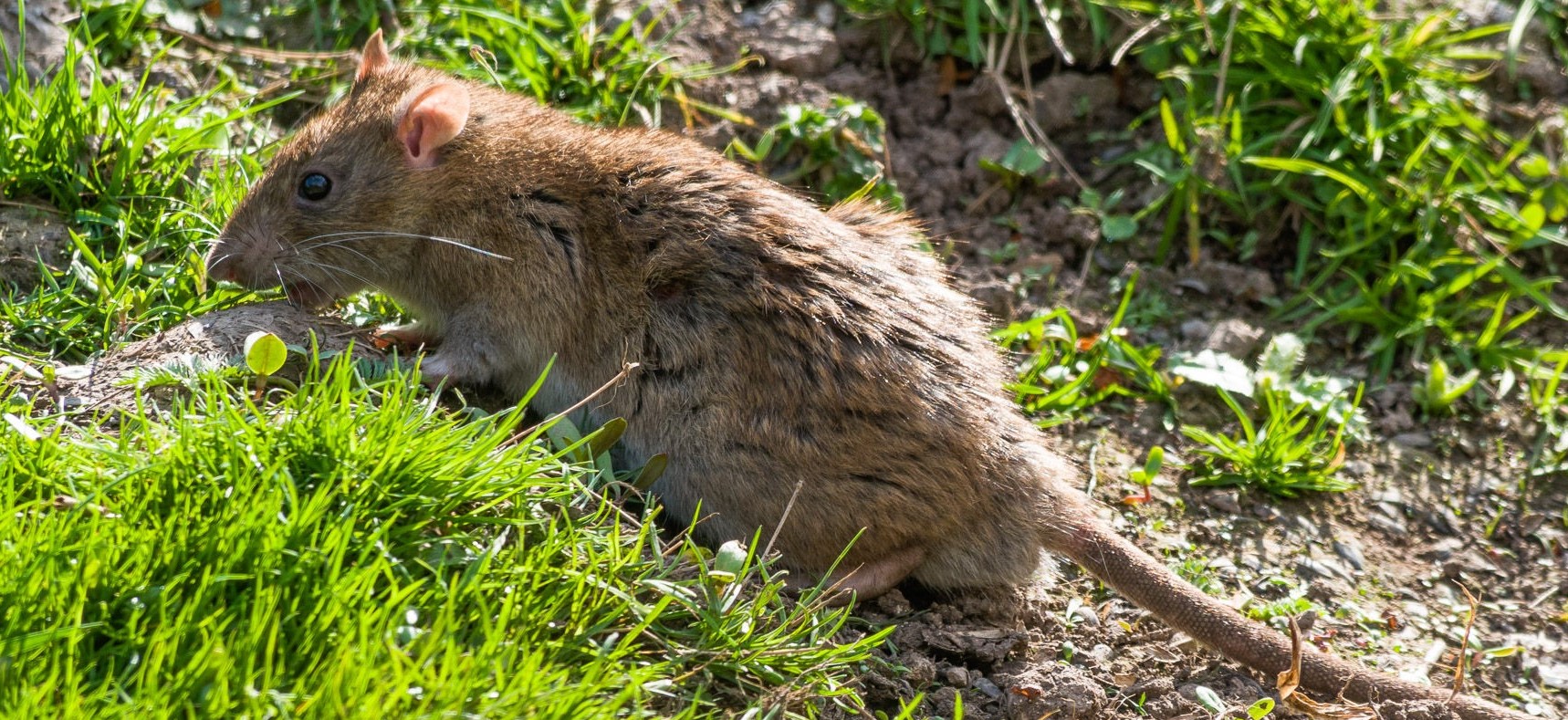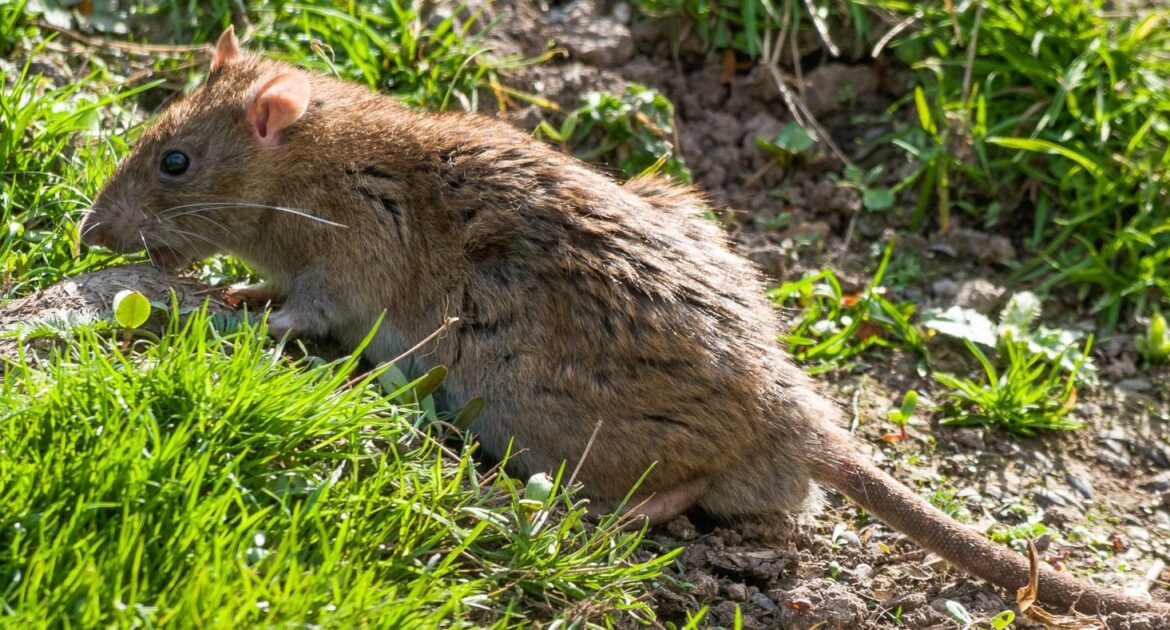When you hear the word “rat,” what image springs to mind? For a lot of people, rats are synonymous with filth, disease, and destruction. These long-standing stereotypes have given rodents a bad reputation, igniting panic at the first sign of an infestation. But is everything we believe about rats actually true? With a better understanding of these rodents and expert advice for rat removal, you can tackle an infestation more confidently and humanely.
If you’re dealing with a rat problem in Montreal, our Skedaddle team should be your first call. With years of experience and humane removal methods, we ensure your home is safe from infestations while protecting the animals and your property. Let us handle the hard work so you can enjoy a pest-free space with peace of mind.
Misunderstood Rodents With Surprising Traits
Before we jump into the risks of a rodent infestation, it’s worth addressing some common misconceptions about rats. While you won’t want to live with them as unwanted intruders, pet rats can actually be delightful companions, with fascinating traits that often go unnoticed.
Cleanliness Obsessed
Contrary to popular belief, rats aren’t dirty by nature. Pet rats, especially, keep themselves meticulously clean, grooming multiple times a day. Their hygiene habits challenge the assumption that all rats are unhygienic creatures. Of course, wild rats searching for food in less-than-clean environments can carry diseases, but this has more to do with their surroundings than their inherent behaviour.
Loyal and Social Creatures
Did you know that rats form strong social bonds? Pet rats often thrive in pairs or groups, and they exhibit strong companionship behaviours, such as playing, communicating, and even showing affection. On the flip side, this love for company means wild rats rarely venture alone. Spotting one rat often indicates a larger rodent infestation hiding in your home or yard.
Memory and Intelligence
Rats are incredibly smart. They can solve puzzles, remember routes, and even form habits. While this intelligence is adorable in pet rats, it becomes a problem for homeowners dealing with infestations. Once wild rats discover a reliable food source, their sharp minds will help them remember how to get back to it. This makes effective removal and prevention a challenge without professional help.
Risks of a Rodent Infestation in Your Home
If wild rats have found their way into your home, their charming traits no longer seem so endearing. A rat infestation poses serious problems, from property damage to health concerns.
Structural and Property Damage
Rats are notorious chewers. They gnaw on everything from wood and insulation to wires and pipes. This chewing behaviour can lead to significant damage, including:
- Electrical fires caused by frayed wires
- Water damage from gnawed pipes
- Weakened structures as they chew through walls or beams
Additionally, their nesting habits create further destruction. Rats often use paper, fabric, and other soft materials to build nests, leaving a mess in their wake.
Health Risks
Rats aren’t just destructive to property; their presence can also endanger the health of your family. They are known carriers of diseases, viruses, and parasites, including:
- Leptospirosis: A bacterial infection that can spread to humans through contaminated water or food.
- Salmonella: Rats can contaminate food supplies, spreading this bacterial infection.
- Hantavirus: A respiratory illness transmitted through exposure to rat droppings or urine.
- Rat-bite fever: A disease caused by bites or scratches from infected rats.
Even if you don’t come into direct contact with rats, their droppings and urine can quickly turn your space into a health hazard. This makes identifying and addressing an infestation an urgent priority.
Common Signs of Rats in Your Home
Rats are sneaky creatures that prefer to stay hidden, but their presence often leaves behind telltale clues. If you suspect a rodent infestation, keep an eye out for these common signs:
Droppings: Look for small, dark, pellet -shaped droppings, often found near food sources, along walls, in cupboards, or under sinks. Fresh droppings are dark and moist, while older ones appear dry and crumbly.
Gnaw Marks: Rats have strong teeth that grow continuously, so they gnaw on almost anything to keep them trimmed. You may notice chew marks on wires, wooden furniture, baseboards, or food packaging. In some cases, damaged electrical wires can even pose a fire hazard.
Noises: Rats are most active at night and tend to make scratching, scurrying, or squeaking sounds as they move inside walls, ceilings, or attics. If you hear noises at night, it’s a strong indication of their presence.
Grease Marks: Rats frequently travel along the same paths, leaving behind dark, greasy smudges or streaks along walls, baseboards, and entry holes. These marks come from their oily fur rubbing against surfaces.
Nests: Rats create nests using materials like shredded paper, insulation, fabric, or other soft items. Nests are often hidden in attics, basements, behind appliances, or other secluded areas. The presence of nesting materials is a clear sign of an infestation.
Footprints and Tracks: In dusty areas, such as basements or storage spaces, you may spot tiny footprints or tail drag marks. A quick way to confirm activity is to sprinkle flour or talcum powder on the floor and check for tracks the next day.
Rats can cause serious damage to your home and pose health risks through contamination and disease. If you notice any of these signs, it’s critical to act quickly by sealing entry points, removing food sources, and considering professional pest control to eliminate the problem.
Rat Removal: Why Professional Help is Best
Eliminating rats is no easy task. These intelligent, slippery critters can evade traps, and DIY solutions often fall short, leading to frustration and recurring infestations. That’s why professional rat removal is a smart choice, especially when it’s handled with care and expertise.
Challenges of DIY Rodent Removal
While store-bought traps and poisons may seem like a quick fix, they come with several downsides:
- Rats quickly learn to avoid traps, making this method inconsistent.
- Poisons pose significant dangers to pets, children, and non-target wildlife.
- DIY methods fail to address why rats were attracted to your home in the first place.
Ultimately, these approaches only offer temporary relief and don’t tackle the root cause of the infestation.
Humane Wildlife Control Solutions
At Skedaddle Humane Wildlife Control, we take a humane and comprehensive approach to rat removal. Here’s what sets our service apart:
- Thorough Inspection: Our trained technicians assess your property to identify the extent of the infestation and locate entry points.
- Safe Removal: We use techniques designed to remove rats humanely. This avoids unnecessary harm while effectively clearing your home of rodents.
- Prevention and Protection: Removal alone isn’t enough. We seal up entry points and apply protective techniques to keep rats from coming back.
- Cleanup and Sanitation: Rat infestations can leave behind droppings, urine, and nesting materials. Skedaddle ensures a deep clean after removal to restore your space to a safe and sanitary condition.
Hiring professionals not only guarantees effective, long-lasting results but also brings peace of mind, knowing your home and family are protected.
How to Prevent Rats From Returning
After dealing with a rodent infestation, the next best step is prevention. Small changes around your home can make it less inviting to rats. Follow these tips for an additional layer of protection:
- Secure Food Sources: Store food in airtight containers and avoid leaving pet food or crumbs out. Keep trash cans sealed.
- Eliminate Clutter: Rats love hiding spots. Declutter your basement, attic, or garage to reduce potential nesting areas.
- Seal Entry Points: Tiny cracks and gaps around doors, windows, and vents are all potential entryways. Inspect and seal these areas with durable materials.
- Maintain Your Space: Keep your yard tidy by trimming overgrown vegetation and storing firewood well off the ground.
Prevention ensures that you won’t have to deal with recurring infestations, saving you time, stress, and money.
Trust Skedaddle for Expert Rat Removal
Wild rats might be intelligent and interesting creatures, but their place isn’t inside your home. If you’re facing a rodent infestation or want to take preventative measures, Skedaddle Humane Wildlife Control is here to help. With years of expertise in humane wildlife control, our team is dedicated to protecting your home and restoring your peace of mind.
From careful inspection to thorough cleanup, we handle every step of the process so you can focus on enjoying a rodent-free space. Don’t wait for an infestation to cause damage or health concerns.
Contact Us Today
Call Skedaddle Humane Wildlife Control in Montreal for expert rat removal and prevention services. Together, we’ll ensure your home stays safe, clean, and free from rodents. Contact us today for a consultation or to request a quote!
FAQ’s
How can I tell if I have a rat infestation in my home?
Common signs include droppings, gnaw marks on wires or wood, scratching noises at night, grease marks on walls, and nests made from shredded materials. Look for these indicators in areas like basements, attics, and near food storage.
Are rats really dangerous to human health?
Yes, rats can carry diseases such as leptospirosis, salmonella, hantavirus, and rat-bite fever. Their droppings, urine, and nesting materials can contaminate surfaces and food, posing serious health risks.
Why is DIY rat removal not recommended?
DIY methods, like traps and poisons, often fail to address the root cause of the infestation and can pose risks to pets, children, and other wildlife. Rats are intelligent and may evade traps, making professional removal a more effective long-term solution.




